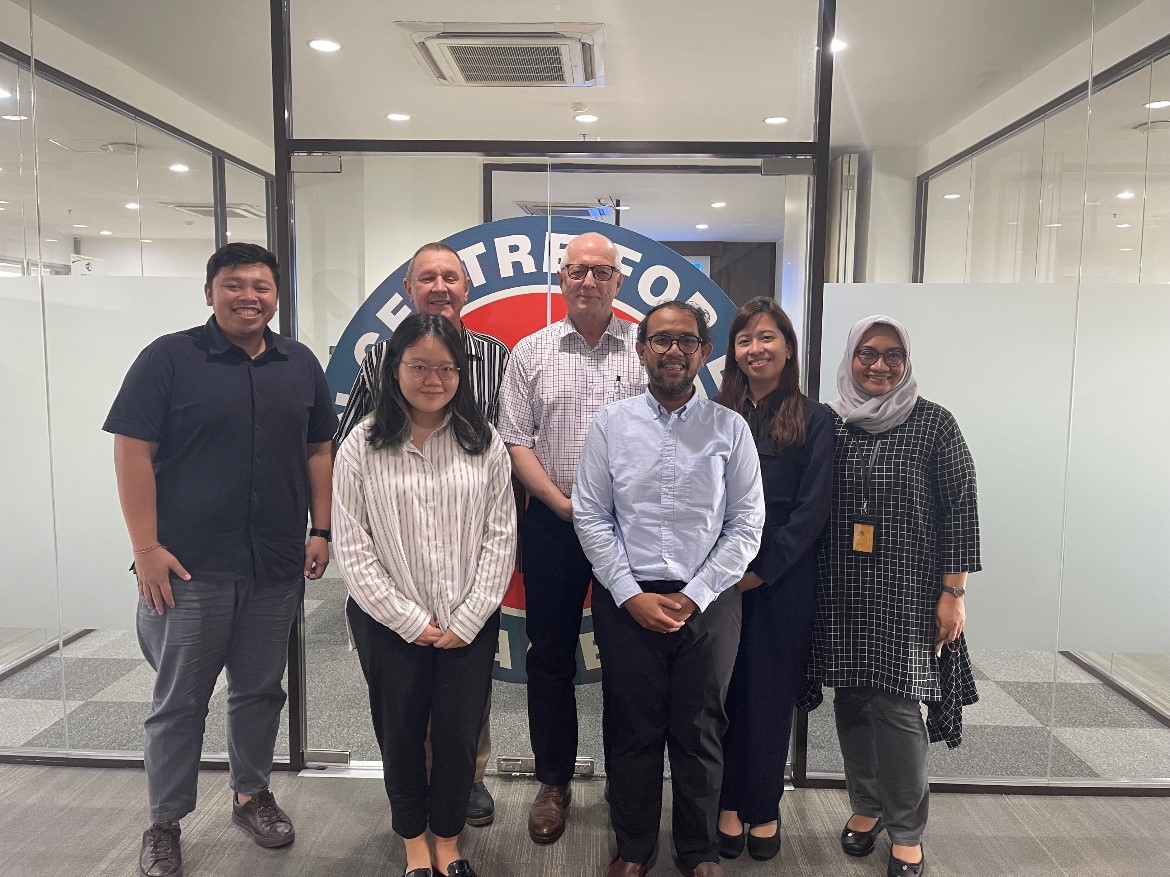i
i
Jakarta, 3 April 2023

NIRAS and ACCEPT II teams during the discussion at ACE Office.
In this meeting, Mayhofer introduced NIRAS and GOPA as the international consulting firms that are committed to sustainable progress and service delivery. Currently, NIRAS and GOPA are implementing an EU-funded project namely the EU-ASEAN Green Initiative to enhance the EU-ASEAN partnership and reduce negative environmental impacts, as well as climate-related and disaster risks covering key areas of the European Green Deal. The Green Initiative is a four-year project started from 2023 to 2026. The Green Initiative addresses four elements:
In addition, the Green Initiative also has cross-cutting components on gender equality, human rights, disability, democracy, conflict sensitivity, and digitalisation. From those mentioned components, it is expected through this initiative that;
Furthermore, accelerating clean energy transition and greater energy efficiency needs various strategic actions, such as:
This is where collaboration play a crucial role in approaching the project through technical assistance, and it is expected that ACE and NIRAS-GOPA could collaborate on implementing the Green Initiative.
In response to Mayhofer, Aldilla Rakhiemah briefly introduced about ACE and the ACCEPT project. She emphasised on the achievements of the first ACCEPT project which has successfully enhanced the awareness of energy-climate intercorrelations, addressed in the ASEAN plan of action for energy cooperation (APAEC) phase II: 2021-2025. She also expressed the optimism of the second ACCEPT project will replicate the success by supporting ASEAN member states and ASEAN’s capacity to advance knowledge sharing on energy and climate nexus in ASEAN, enhance ASEAN’s capacity as Low-Carbon Economy towards carbon neutrality (net zero), and strengthen regional structure, capacity, and gender equality on energy-climate nexus.
Shidiq also welcomed and supported any potential collaboration to enhance more awareness on the interplay between energy, economy, and climate in ASEAN through strategic actions. One of them is by conducting a collaboration workshop in related to carbon pricing mechanisms or just energy transition in ASEAN. It is essential since ACCEPT II project is open to any kind of constructive collaboration, exchanging knowledge and resources to help achieve a better and sustainable future in ASEAN. During the discussion, the parties noted that there are room for collaboration which may include but not limited to joint studies on an agreed theme, capacity building including workshop, training and FGD, and site visit to increase practical knowledge for ASEAN Member States on any areas related to energy and climate. Moving forward, all parties are looking forward to discussing further details regarding the collaboration agreement and its detailed activities.
Detailed information on ACCEPT II can be found at https://accept.aseanenergy.org/.
ACCEPT welcomes any collaboration, please feel free to contact us at [email protected]